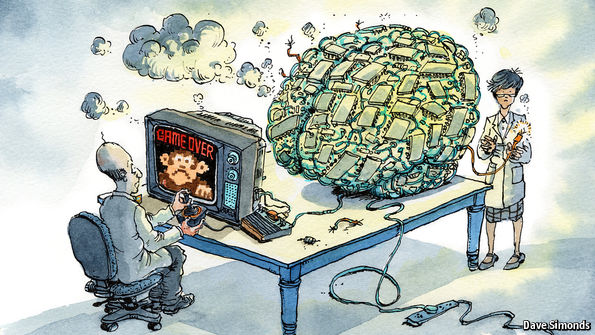Testing the methods of neuroscience on computer chips suggests they are wanting

NEUROSCIENCE, like many other sciences, has a bottomless appetite for data. Flashy enterprises such as the BRAIN Initiative, announced by Barack Obama in 2013, or the Human Brain Project, approved by the European Union in the same year, aim to analyse the way that thousands or even millions of nerve cells interact in a real brain. The hope is that the torrents of data these schemes generate will contain some crucial nuggets that let neuroscientists get closer to understanding how exactly the brain does what it does.
But a paper just published in PLOS Computational Biology questions whether more information is the same thing as more understanding. It does so by way of neuroscience’s favourite analogy: comparing the brain to a computer. Like brains, computers process information by shuffling electricity around complicated circuits. Unlike the workings of brains, though, those of computers are understood on every level.
Eric Jonas of the University of California, Berkeley, and Konrad Kording of Northwestern University, in Chicago, who both have backgrounds in neuroscience and electronic engineering, reasoned that a…Continue reading
Source: Economist




